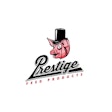
An on-package GMO labeling law set to take effect on July 1 in Vermont could have widespread impacts on the food and livestock feed industries, and essentially would “force farmers to turn back the clock,” said Steve Censky, CEO of the American Soybean Association.
However, there is still time to stop it. The U.S. Senate has been debating a bill that seeks to create a voluntary, national food labeling standard for foods containing genetically modified ingredients that would nullify the Vermont law. But the Senate has only one business week to do so, said Censky and other members of the Coalition of Safe and Affordable Food. The coalition held a conference call on June 16, urging the U.S. Senate to intervene and pass legislation that would stop the law.
While it is a Vermont law, food to be sold in Vermont that is produced elsewhere would be required to carry GMO labeling, which would have a nationwide impact.
“Failure by the Senate to pass a bill to stop Vermont’s on-pack GMO labeling will have extensive, costly and long-lasting negative impacts on farmers, consumers and food companies in state after state across the nation,” said Censky. “If Vermont’s mandatory on-package GMO label is allowed to stand, our nation will have a de-facto national labeling law, as companies label packages to meet this small state’s law. And what will happen? Anti-GMO activists have made clear that they will use these labels to scare consumers and drive biotechnology from the marketplace, just as they have done in Europe. Years of agriculture innovation and progress will be lost, forcing America’s farmers to turn back the clock.”
According to Censky, 90 percent of all soybeans, corn, sugar beets and cotton have been produced with the use of biotechnology, which has been proven safe to the consumers. That is because they offer so many benefits.
“Ag biotechnology has helped farmers to make both insect pest control and weed management safer, while safeguarding crops against disease. It has allowed for a significant reduction in the use of pesticides, and promoted no-till or reduced tillage agriculture systems that helped preserve topsoil from erosion, and enhanced water quality,” he said.
Widespread opposition to Vermont GMO labeling law
Others participating on the call were Pamela Bailey, president and CEO of the Grocery Manufacturers Association; Chuck Conner, president and CEO of the National Council of Farmer Cooperatives; and Leslie Sarasin, president and CEO of the Food Marketing Institute, all of which are urgently requesting the U.S. Senate to pass a bipartisan solution.
“Our coalition is backed by over 800 organizations from all 50 states, and we have never been this united on any issue,” explained Conner. “We are all united in opposition to Vermont’s mandatory, on-package GMO labeling law, and the need for a federal solution to prevent a patchwork of costly and confusing state laws.”
Conner added that Senate Agriculture Committee Chairman Pat Roberts, R-Kansas, also had said he had never seen a more united opinion on any one agriculture issue. Roberts’ congressional career started in 1981 as a member of the U.S. House of Representatives. He served as the House Agriculture Committee chairman from 1995 to 1997, serving in that capacity until his election to the Senate. Before his time as a House member, he was a congressional aide to Rep. Keith Sebelius, R-Kansas.
Close to a compromise?
It is apparent that the Senate is close to reaching a consensus, Bailey said, as Roberts and Ranking Member Debbie Stabenow, D-Michigan, appear to be working out final details, but with just a week before the House leaves for its recess, the time for them to act is now.
“Close is not enough. The fly ball that is caught just short of the wall is an out, not a home run. We’re in the ninth inning. We need a win. Time is running out, but success is still possible,” said Bailey. “The bipartisan agreement will be a win for all Americans.”
















